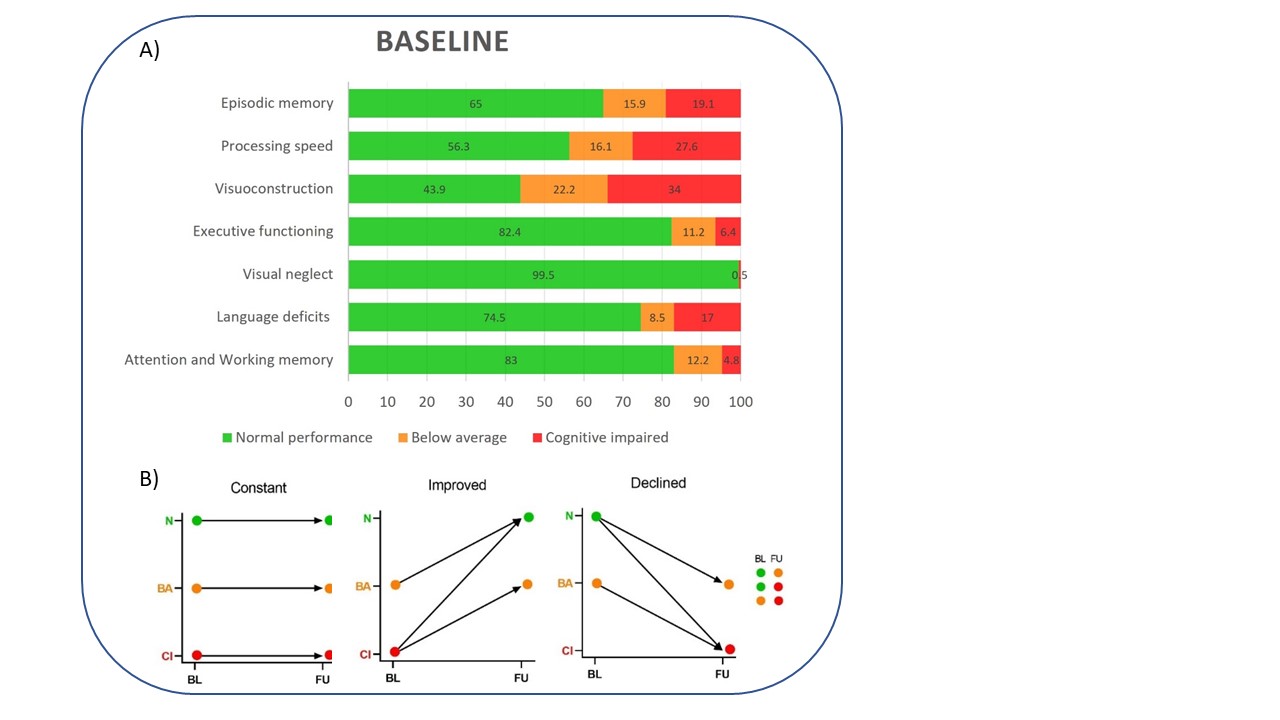Young stroke

Background: Stroke affects millions of people worldwide and is one of the leading causes of death. Strokes in young adults (18-50 years) account for 10-20% of all strokes. The absolute number of stroke is increasing dramatically and the mean age of stroke is declining, which can be attributed to increased incidence of strokes in young adults. Half of young ischemic stroke patients experience post-stroke consequences, including cognitive impairment (figure), and are unable to participate in the community. Information about treatment and the prognosis of long-term disabilities and recurrence of ischemic events is very important for young patients, who are in their prime of professional, social and family life. However reliable information is limited for this vulnerable group. This lack of knowledge also translates to different treatment regimes for young ischemic stroke patients across the country.
An effective and personalized treatment can be developed if we better understand the mechanisms of post-stroke cognitive deficits and if we can identify individual patients at risk for post-stroke deficits. New MRI techniques are a promising tool in investigating the mechanisms of post-stroke deficits. A potential mechanism of post-stroke deficits could be the brain network damage. Results from neuroimaging suggest that focal lesions might cause disrupted brain connectivity remote from the lesions, which affects cognitive performance. The overall aim in this project is to better understand the post-stroke prognosis in young adults with ischemic stroke and to develop a method for more accurate risk stratification for post-stroke deficits, eventually contributing to better treatment managements.